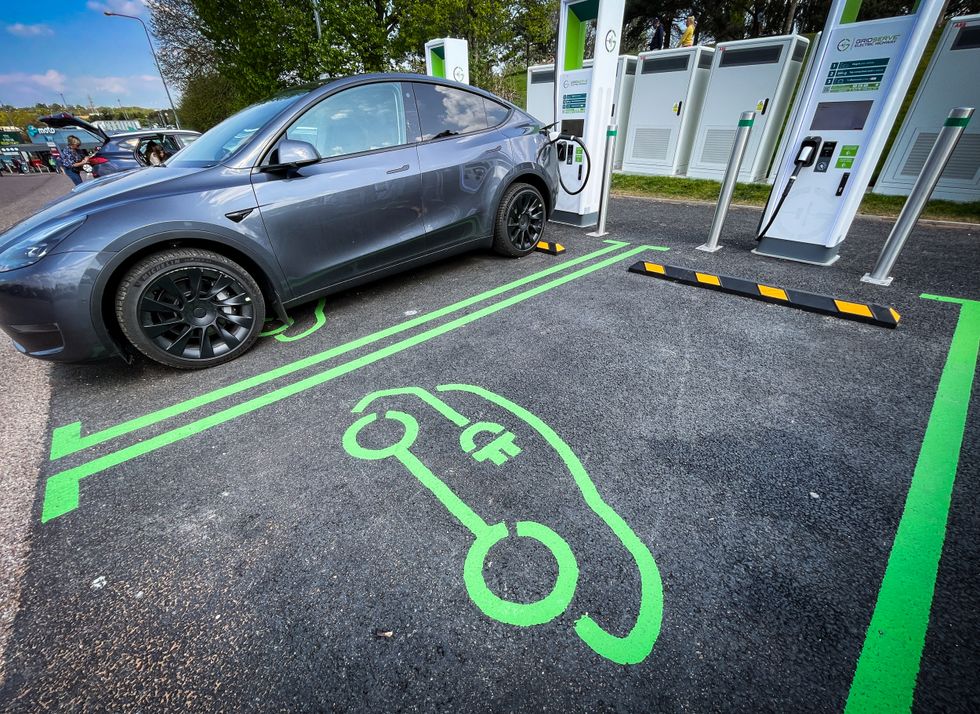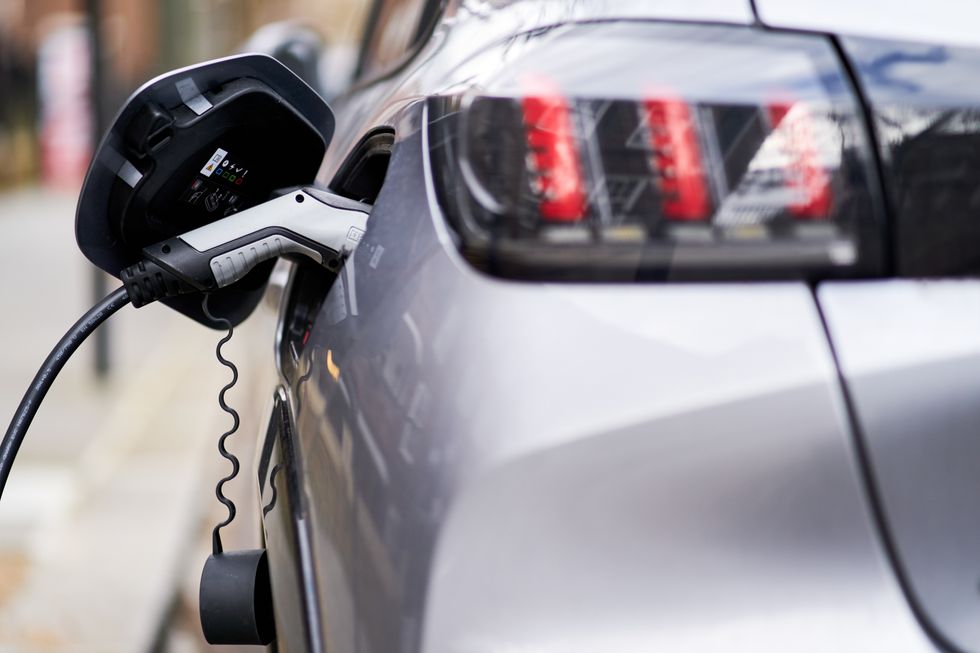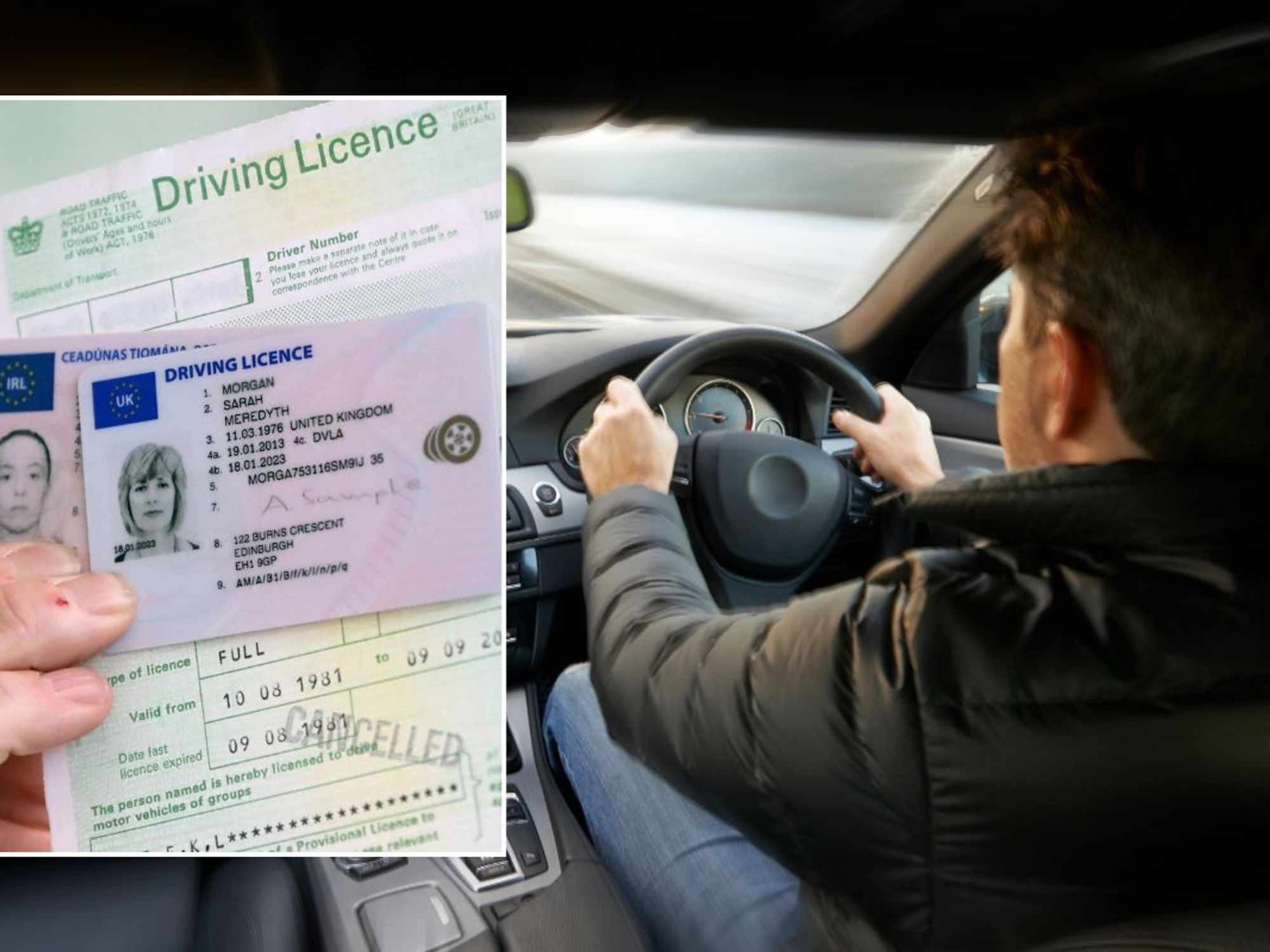Over half of drivers acknowledged it is important to have an EV but costs are off putting
Don't Miss
Most Read
Trending on GB News
Demand for electric vehicles has slowed down, with market share dropping by 16.5 per cent in 2023.
Making the switch to an electric vehicle is a one of the Government’s main priorities this year, to encourage as many drivers to purchase one as possible.
However, while this is a priority, the lack of incentives and support to back the transition has left many drivers conflicted.
The proportion of drivers that stated their next vehicle will likely be electric remains at 40 per cent, according to new research, but stagnant at this figure and unchanged from the last survey.
Do you have a story you'd like to share? Get in touch by emailingmotoring@gbnews.uk

The lack of incentives and support to back the transition has left many drivers conflicted
GETTY
The popularity of purchasing an EV only declines with age, with 60 per cent of 25-34-year-olds likely to buy one, while only 29 per cent of over-55 seem convinced.
Research revealed that the move has not completely had a negative impact on drivers’ appetite for EVs.
Almost a third (29 per cent) said they are now more likely to switch to electric, while 20 per cent say they are less likely and 51 per cent remain unsure.
The increase in drivers who are willing to make the move over to electric followed the Government’s ambitious targets, which seemed to have an impact.
The Government announced last year it hoped to have 80 per cent of new cars and 70 per cent of new vans sold in Great Britain have zero emission by 2030, increasing to 100 per cent by 2035.
Nick Williams, managing director at Lex Autolease, which commissioned the research, said: “Transport is an issue that’s extremely important to British people, who recognise the important role it has to play in the economy, the environment and in enabling the kind of lifestyle they enjoy.
“We saw how the cancelation of the northern leg of HS2 generated such a passionate response in 2023, as did delaying the ban on the sale of new petrol and diesel cars.
“Compared with drivers, businesses have a wide range of incentives to support their transition to EVs and are further encouraged by the key role a more sustainable approach to transport plays in winning new business and recruiting top talent.”
Almost two thirds (65 per cent) of drivers agreed that the transition to EVs will be important in helping the UK reach net zero.
Additionally, over half (55 per cent) acknowledged it is important that the vehicle they drive helps them reduce their environmental impact as much as possible.
But owning an EV is still too costly for many as financial and practical considerations outweigh environmental concerns, the research highlighted.
While there are main factors encouraging drivers to buy electric such as cheaper running costs, avoiding Ulez charges and boosting sustainability, the top three barriers remain the same as the previous survey, vehicle costs, charging point availability and the time taken to charge a vehicle.
LATEST DEVELOPMENTS:
- Cars could be forced to ditch 'slow' touchscreens as 89 per cent of drivers prefer physical buttons
- Driving law changes needed to avoid 'streets descending into chaos' and 'disaster' for UK road users
- Electric car switch in danger as drivers attack Hunt for ignoring 'bizarre tax' - 'enormously disappointing'

Almost two thirds of drivers agreed that the transition to EVs will be important in helping the UK reach net zero
PAWilliams added: “The UK has the opportunity to be a global leader on this vital issue, so we want to inform and inspire stakeholders across industry.”









